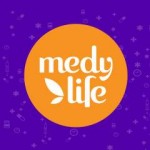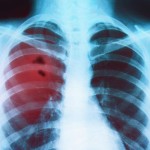
Vitamin B 12 deficiency
Vitamin B12 deficiency anemia is a low red blood cell count due to a lack of vitamin B12. Anemia is a condition in which the body does not have enough healthy red blood cells. Red blood cells provide oxygen to body tissues.
Vitamin B12 and folate together help the body produce red blood cells. They also have several other important functions: Vitamin B12 keeps the nervous system (brain, nerves and spinal cord) healthy.

Vitamin B12 is generally found in:
Meat
Eggs
Dairy products
Folate is important for pregnant women because it reduces the risk of birth defects in unborn babies. The best source of folate is green vegetables such as:
Broccoli
Brussel sprouts
Peas
Symptoms
Symptoms of anemia vary depending on the underline cause:
Vitamin B12 deficiency/ pernicious anemia
If anemia is caused by a vitamin B12 deficiency, one may have symptoms like:
Yellow colouration of the skin
A sore and red tongue (glossitis)
Ulcers inside mouth
An altered sense of touch
Disturbed vision
Irritability
Depression
Psychosis
Dementia – a decline in mental abilities, such as memory, understanding and judgment
Folate deficiency
As well as general symptoms of anemia, a folate deficiency may also cause:
Loss of sensation, such as a reduced sense of touch or pain
Muscle weakness
Depression
Causes
The exact cause is not known, but the disease is associated with certain risks factors which include:
Age – Pernicious anemia is most common at later age
Gender – Pernicious anemia affects slightly more women than men
Family history – nearly a third of people with anemia also have a family member with the condition
An autoimmune condition, such as Addison’s disease or vitiligo – is also associated with anemia and other autoimmune conditions
Diet- The body generally stores vitamin B12 to last approximately two to four years. However, it is important to have vitamin B12 in the diet to ensure the store is kept at a healthy level.
Conditions affecting the stomach- Some stomach conditions or stomach operations can also prevent the absorption of vitamin B12. For example, a gastrectomy(a surgical procedure where part of the stomach is removed) also increases risk of developing vitamin B12 deficiency anemia.
Conditions affecting the intestines- Some conditions that affect intestines (part of the digestive system). For example, Crohn’s disease (a long-term condition that causes inflammation of the lining of the digestive system) can sometimes result in the body not able to absorb enough vitamin B12.
Folate deficiency anaemia
Folate is a water-soluble vitamin (it dissolves in water), as a result, body is unable to store it for long periods of time. Body stores folate that last four months. This means one needs the folate in daily diet to ensure the body has sufficient stores of the vitamin.
Diet- Not having enough folate in daily diet.
Mal absorption- Sometimes the body is unable to absorb folate as effectively as it should. This is usually the result of an underlying condition affecting the digestive system, such as Coeliac disease.
Excessive urination- Body may lose folate from the body if one urinate frequently. This can be caused by an underlying condition that affects one of the organs, such as your kidneys or liver.
Pregnancy- If a woman is pregnant or planning to get pregnant, a daily supplement of 0.4mg of folic acid should be taken for at least 12 weeks.
Diagnosis
The doctor may prescribe a complete blood count or peripheral blood smear after patient history and physical examination.
Treatments
Treatment mainly depends upon the underlying conditions for the anemia:
Diet-related
If vitamin B12 deficiency is caused by a lack of the vitamin in the diet, the doctor may prescribe vitamin B12 tablets to take every day between meals. Alternatively, the patient may have to take an injection of hydroxocobalamin twice a year.
Good sources of vitamin B12 include:
Meat
Salmon
Milk
Eggs
If a person is vegetarian, alternative food for meat and dairy products, that contains vitamin B12, such as:
Some fortified breakfast cereals
Some soy products
Not diet-related
If vitamin B12 deficiency is not caused by a lack of vitamin B12 in the diet, the patient may need to have an injection of hydroxocobalamin every three months for the rest of life.
Folate deficiency anaemia
To treat folate deficiency anaemia, the doctor may prescribe daily folic acid tablets to build up patient’s folate levels.
Complications
Vitamin B12 deficiency complications
A lack of vitamin B12 can cause the following complications:
Nervous system
A lack of vitamin B12 can affect the nervous system (the brain, nerves and spinal cord). For example, one may experience:
Vision Issues
Memory loss
Paraesthesia (pins and needles) – a prickling or tingling feeling in the arms, legs, hands or feet
Ataxia – the loss of physical coordination, which can affect your whole body and cause difficulty speaking or walking
Fertility
Vitamin B12 deficiency can sometimes lead to temporary infertility (an inability to conceive).
Folate deficiency complications
A lack of folate can cause complications, some of which are outlined below.
Fertility
As with a lack of vitamin B12, a folate deficiency can also affect fertility. However, effects are only temporary and can be reversed by using vitamin supplements.
Premature birth
Lack of folate during pregnancy may also increase the risk of the baby being born prematurely (before week 37 of the pregnancy).
References:








